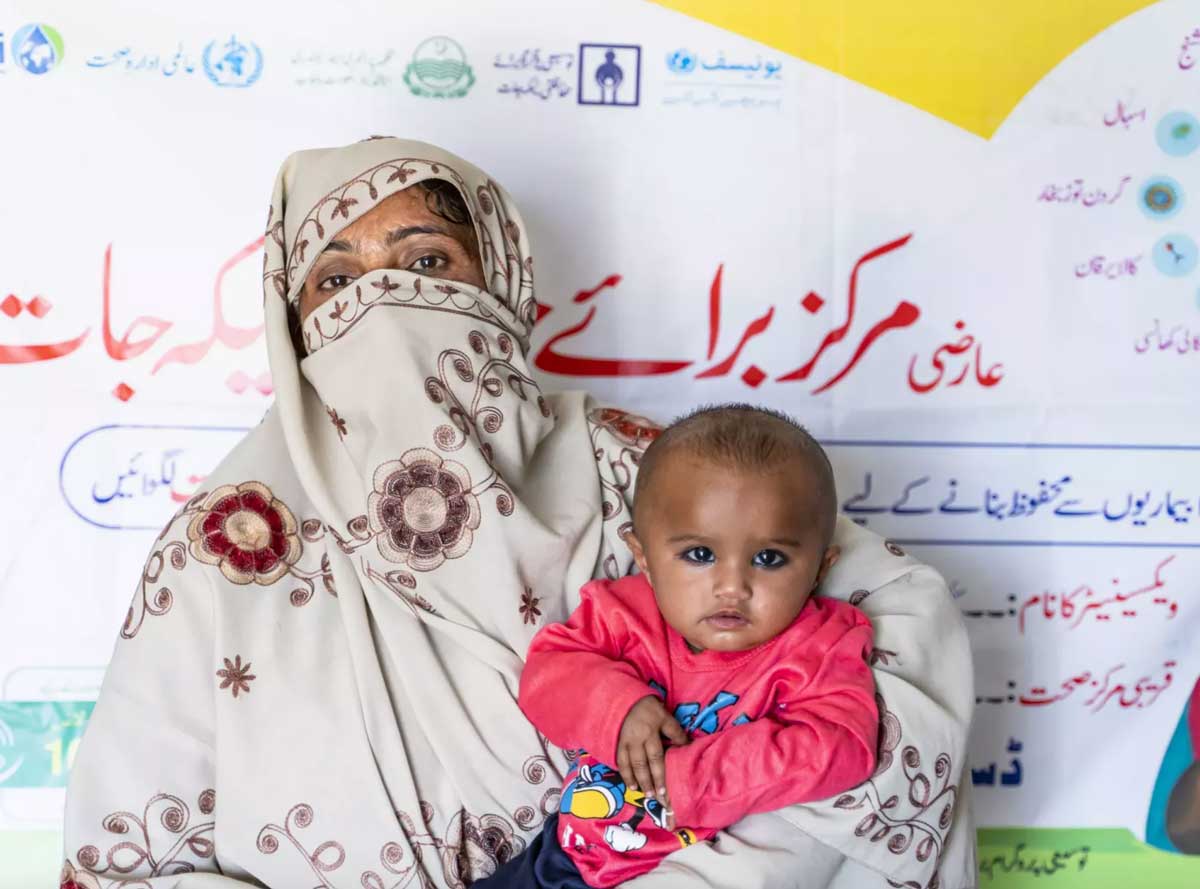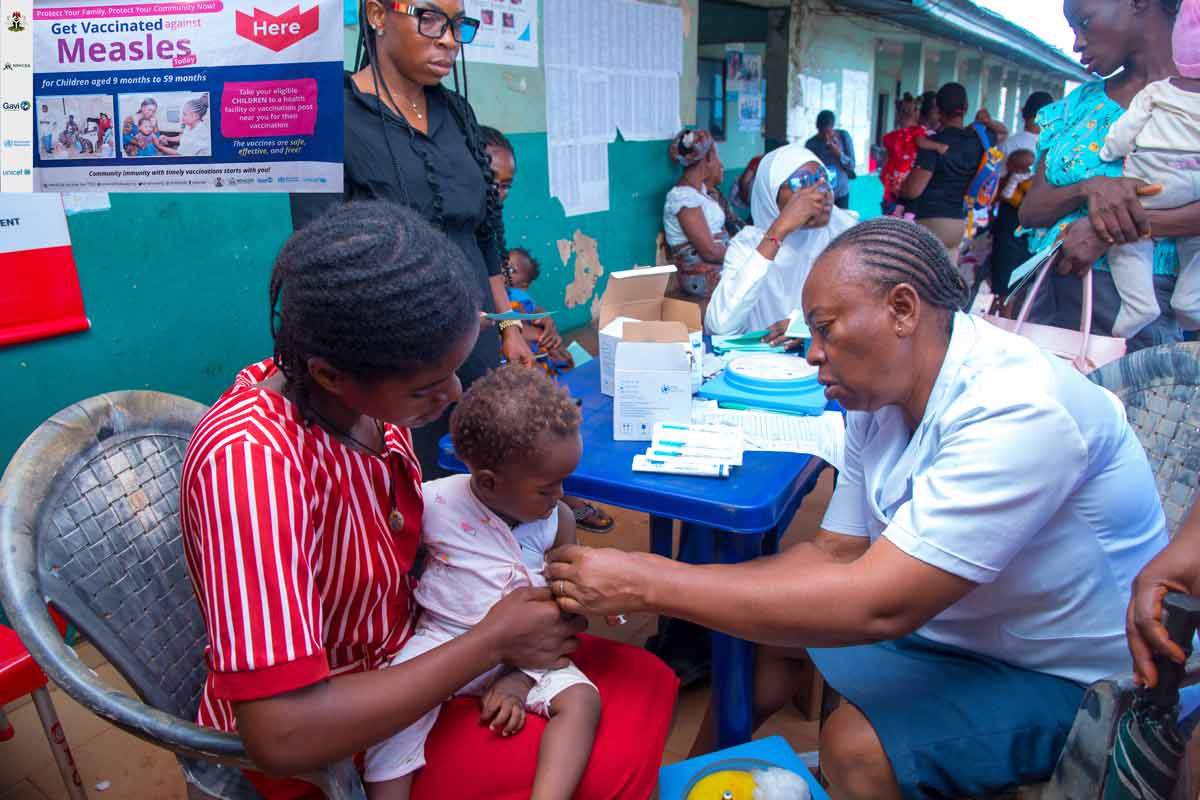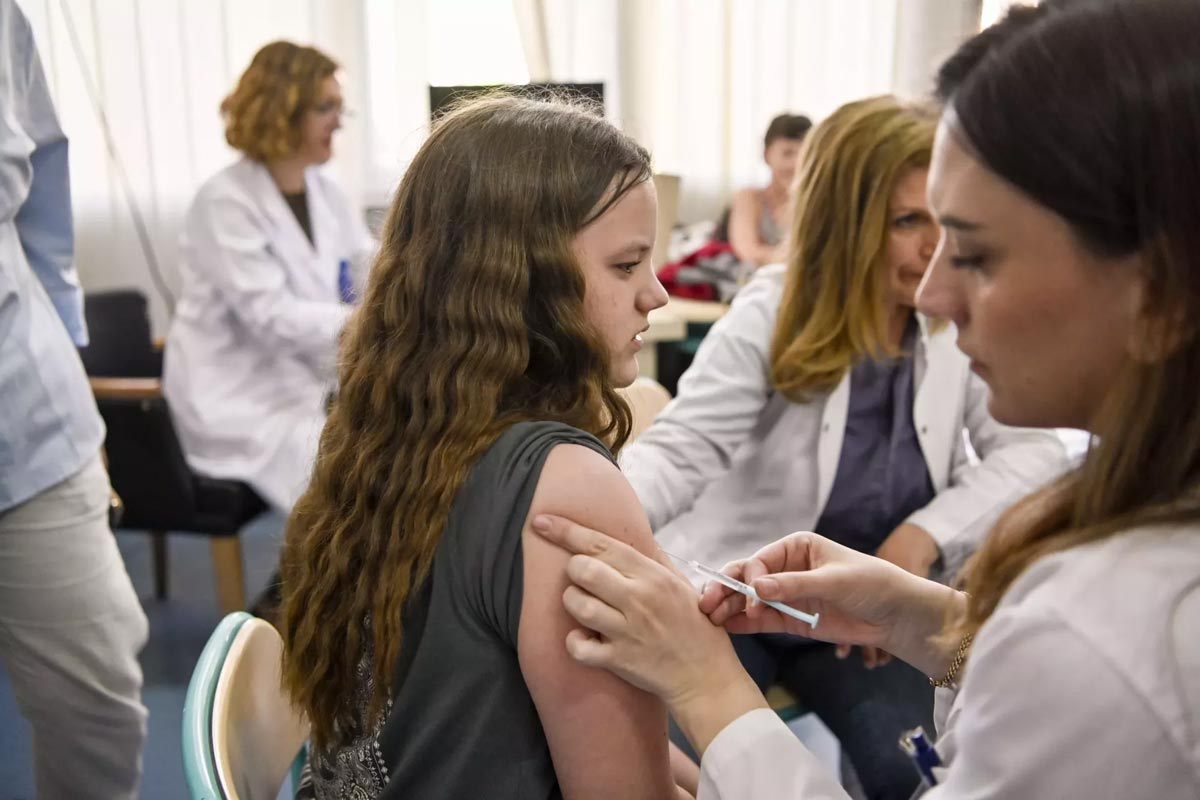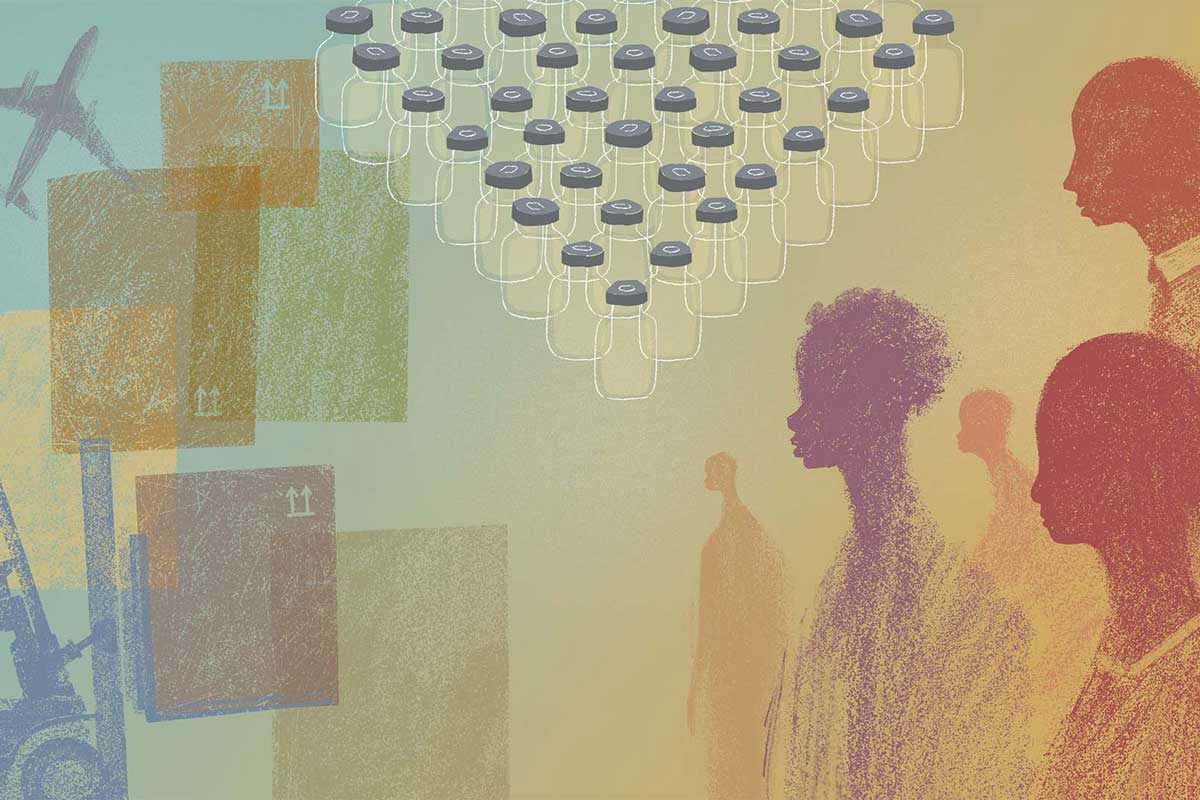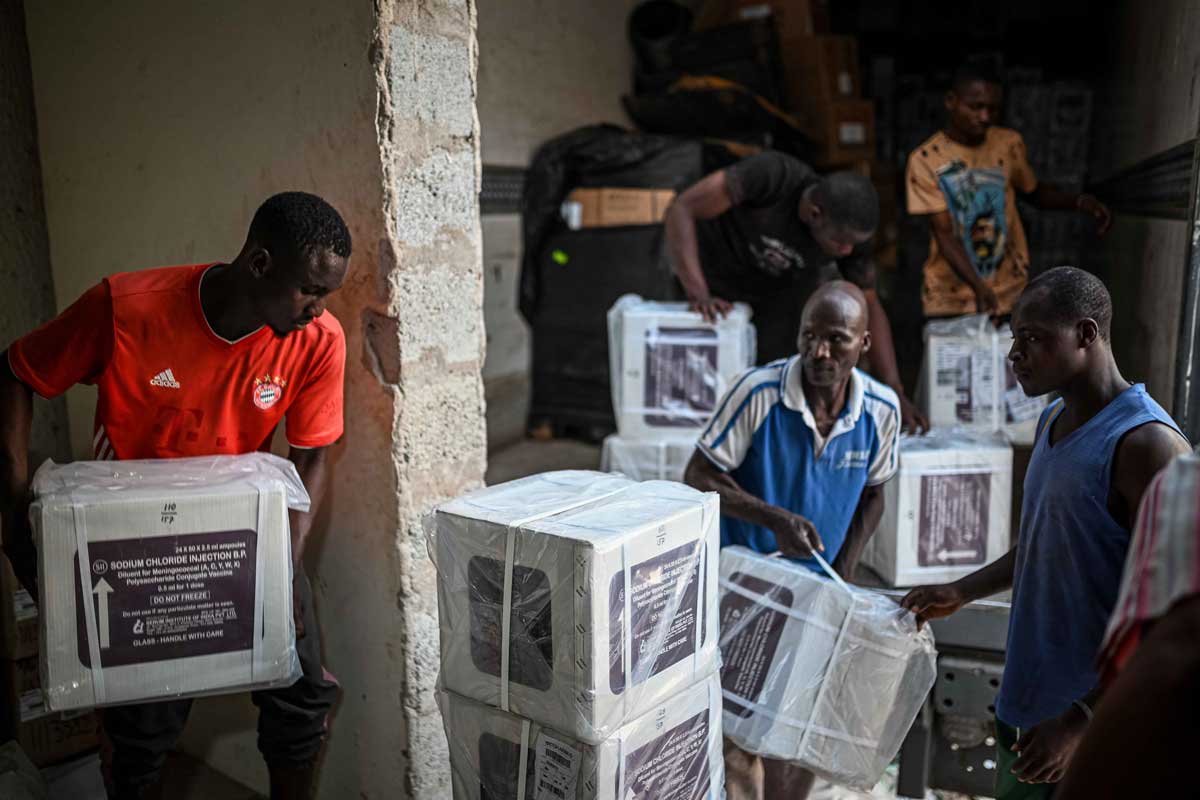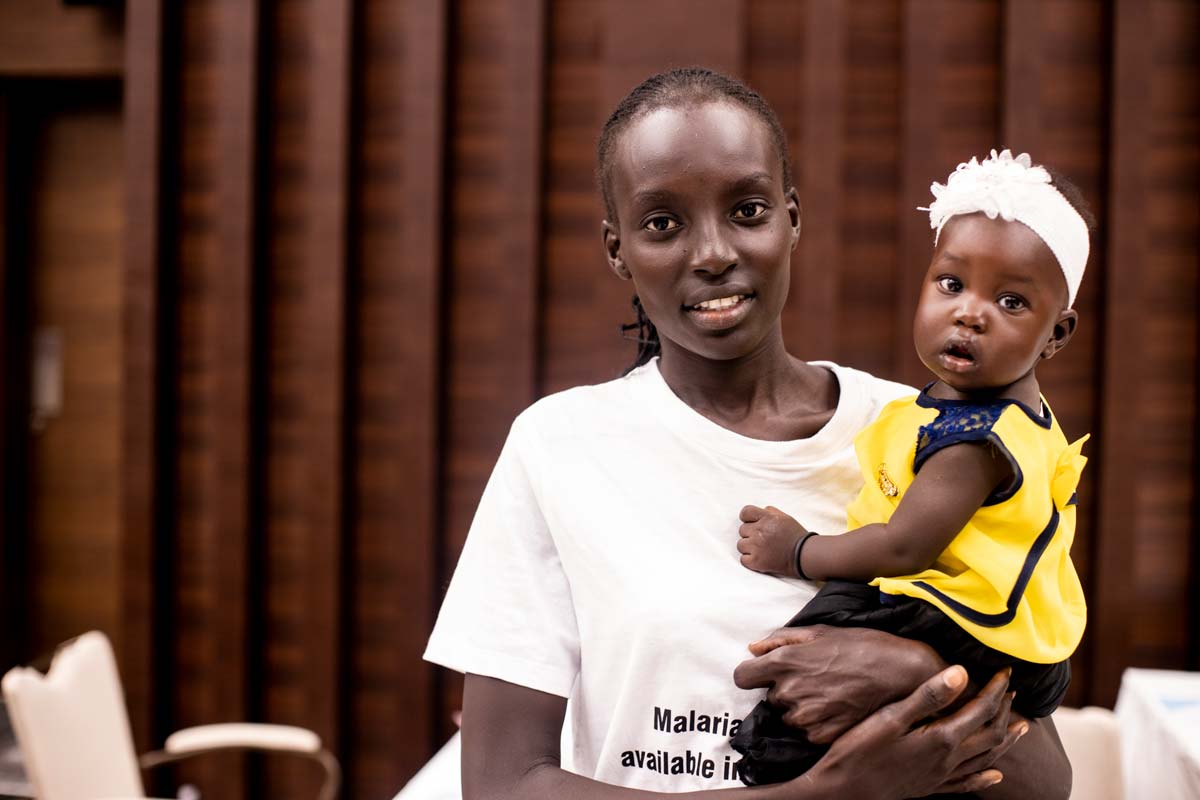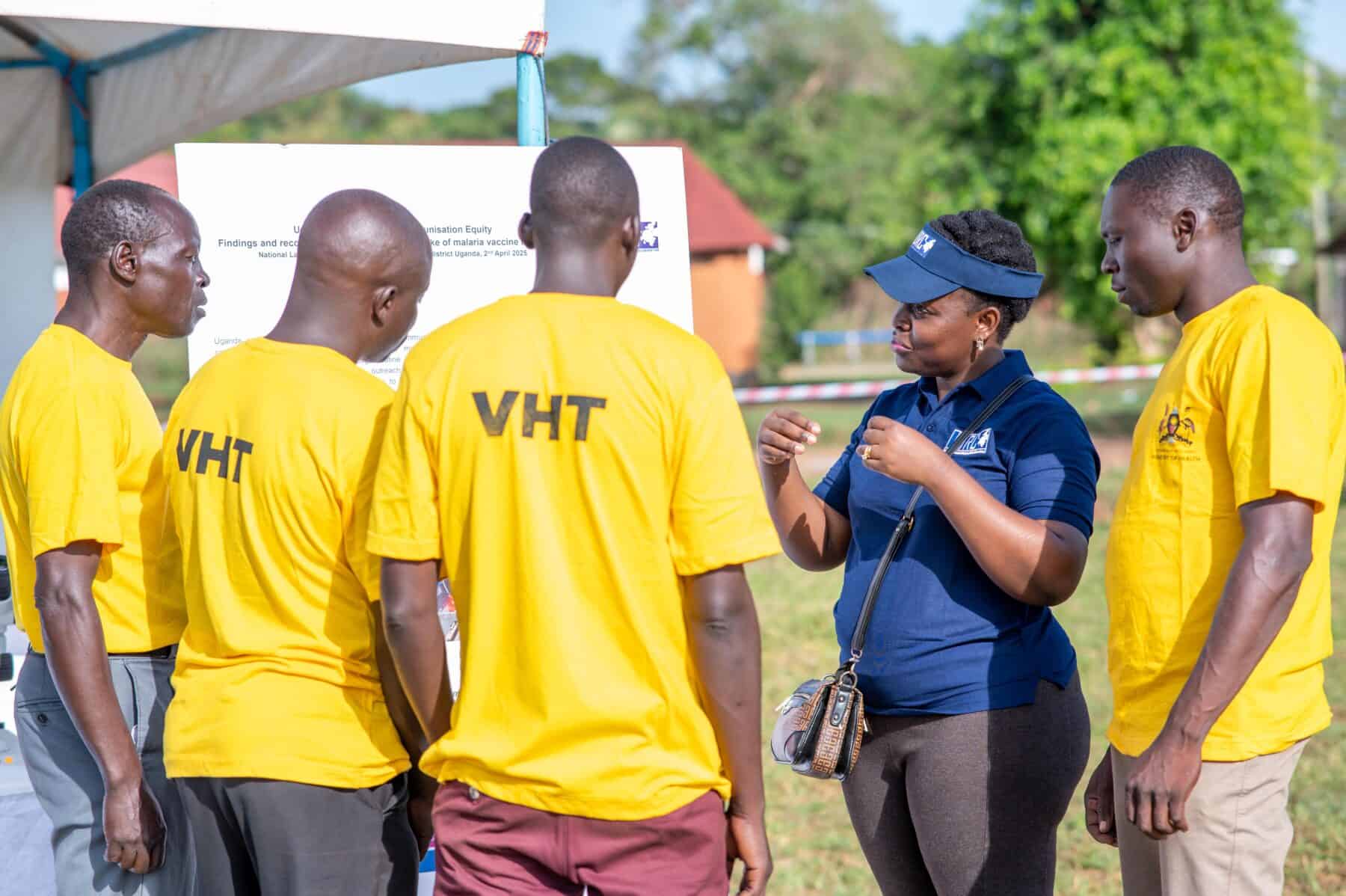A legacy of progress, a future of promise
As the Essential Programme on Immunization (EPI) marks its 50th year, reflections on its evolution and future.
- 24 January 2025
- 5 min read
- by UNICEF
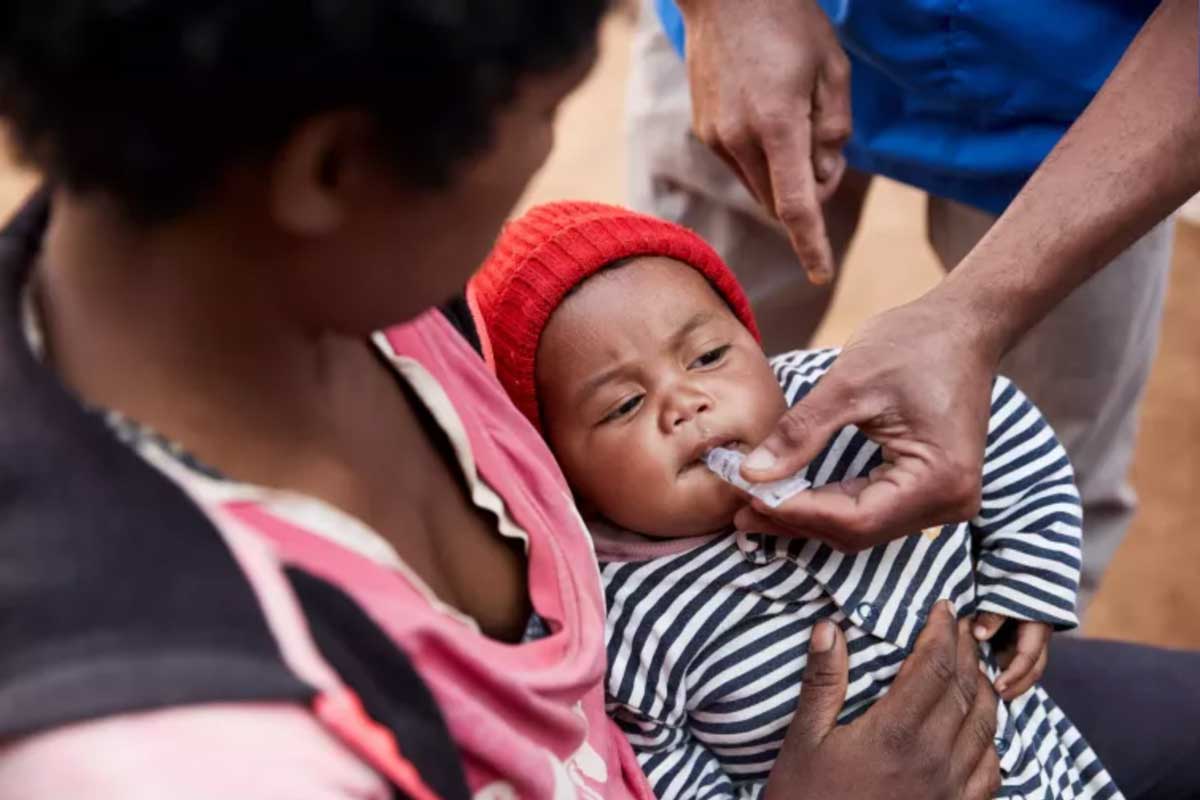
What would it mean for global health if, by 2050, every child, no matter where they live, were vaccinated against preventable diseases?
We would see a world where immunization saves lives and creates a foundation for equitable health.
This vision, optimistic as it may seem, reflects the mission of the Essential Programme on Immunization (EPI), launched in 1974. This initiative aimed to provide universal access to vaccines for all children, protecting them from diseases like measles, polio and diphtheria.
As the programme celebrates 50 years, we take the opportunity to reflect on its evolution, its challenges and its future.
United for a common cause
Countries with support from UNICEF, WHO, Gavi and many other partners and donors, have worked hand in hand, each bringing their unique strengths to the shared mission of the EPI. This collective commitment has transformed immunization into a universal tool for equity and survival. It is a testament to what humanity can achieve when united for a common cause.
For UNICEF, the programme holds a special connection to James Grant, the agency’s Executive Director from 1980 to 1995. Grant’s legacy embodies the EPI’s spirit of resilience. We remember him in 1985 El Salvador, amidst a civil war tearing the country apart, advocating and contributing to an agreement for 'Days of Tranquility', a ceasefire that allowed vaccinations to proceed uninterrupted. Through his persistence, the parties involved came to realize that children were more important than war. It was as true then, as it is today: the future always has priority.
Over the past 50 years, the EPI has become one of the most successful public health initiatives in history, saving an estimated 154 million lives. Its milestones are staggering:
- Smallpox, once a global scourge, was eradicated through coordinated immunization efforts.
- Polio has been driven to the brink of eradication, with cases reduced by over 99%.
- New vaccines, like those for HPV and rotavirus, have prevented millions of deaths, offering hope for the future.
The HPV vaccine in particular exemplifies the broader social impact of immunization through its empowerment of women, addressing systemic inequities that extend beyond health.
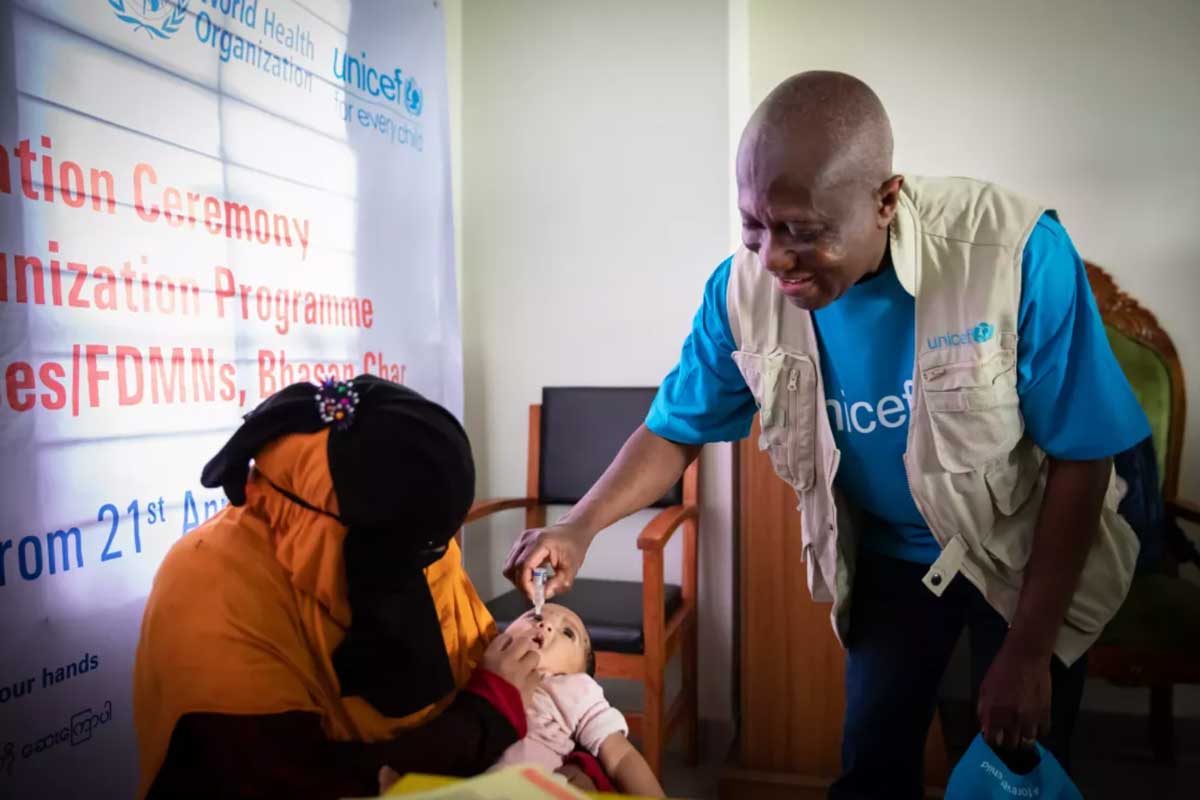
Progress through protection
When the programme began, fewer than 5 per cent of infants globally had access to routine immunization.
The 'Child Survival Revolution' of the 1980s changed everything.
Under the Universal Childhood Immunization programme, vaccination rates in developing countries soared from under 5 per cent to over 80 per cent within a decade.
James Grant’s leadership played a pivotal role in this transformation. By introducing the GOBI-FFF concept (growth monitoring, oral rehydration therapy, breastfeeding, immunization, food supplementation, female education and family planning) he combined simple, life-saving interventions to dramatically improve child survival and health worldwide.
From the start, the EPI championed practical solutions, with UNICEF driving innovations in vaccine management, procurement, advocacy and resource mobilization.
- Vaccine vial monitors (small indicators that show if a vial has been exposed and compromised by heat) and solar-powered cold chains ensured doses remained potent in remote areas, while bulk procurement lowered costs and reached millions.
- Advocacy campaigns featuring high-profile ambassadors, such as Audrey Hepburn, raised global awareness and resource mobilization initiatives, like greeting card operations, sustained efforts.
- Innovations like safe syringe technologies and disposal methods during the HIV epidemic further underscored UNICEF’s ability to address emerging global health challenges.
An unfinished story
However, the EPI is not just a story of success, the continued urgency of reaching every child, especially in fragile and conflict-affected regions, cannot be overstated.
Millions of zero-dose children − those who have never received a single vaccine − remain beyond the reach of health systems and weak supply chains complicate delivery. Vaccine hesitancy, driven by misinformation and mistrust, poses another significant challenge. Addressing these issues is our next great task.
UNICEF, through innovative approaches like community-level micro-planning and engagement with local leaders, has tailored strategies to address barriers and reach inaccessible children. In addition, leveraging behavioral science and social data, UNICEF and partners work to understand hesitancy and rebuild trust, providing families with accurate information about the benefits and safety of vaccines.
Have you read?
The future of immunization
As we envision the future of EPI, it is crucial to draw inspiration from its rich legacy and dare to dream even bigger.
With advances in science, technological innovations and a deeper understanding of social dynamics, we have the tools to overcome existing barriers and anticipate future ones. Among the most transformative shifts is the potential for vaccines to move beyond prevention and contribute to improving quality of life. Vaccines targeting diseases such as cervical and liver cancer already highlight this evolution, addressing not only mortality but also the broader well-being of communities. Additionally, in the coming decades, technological advancements such as heat-stable vaccines that eliminate the need for cold-chain logistics, needle-free delivery systems, mRNA platforms adapted for various diseases and drones reaching remote areas may revolutionize how we protect children worldwide. Realizing this potential will depend on our collective commitment to equity, innovation and partnership.
The EPI journey continues, driven by the belief that every child, everywhere deserves protection from preventable diseases and that we can build a world where no child is left behind.
George Laryea-Adjei, Director of UNICEF's Programme Group, has dedicated over two decades to advancing policies and strategies that improve child outcomes.
Ephrem T. Lemango, Associate Director and Chief of Immunization at UNICEF, leads with in-depth experience in immunization, child health, maternal health, primary health care and macroeconomic issues.
